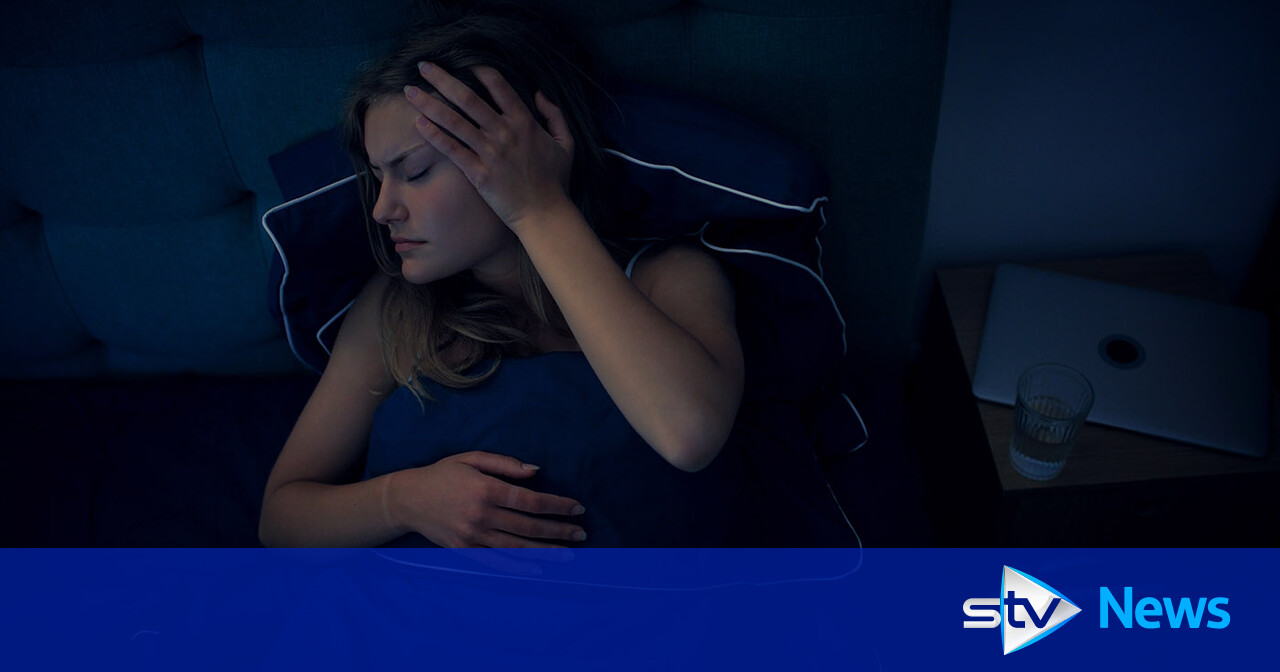Regularly sleeping less than five hours a night could increase the risk of depression, research suggests.
Poor sleep has been seen in the past as a side effect of poor mental health, but the new study found that the link between sleep and mental illness is more complex.
People with a stronger genetic predisposition to short sleep of less than five hours in a given night were more likely to develop depressive symptoms over a period of four to 12 years, according to the study by researchers at UCL.
But those who had a greater genetic predisposition to depression were not more likely to have little sleep.
Lead author Odessa Hamilton, from UCL’s Institute of Epidemiology and Healthcare, said: “We have this chicken-or-the-egg scenario between suboptimal sleep duration and depression, they frequently occur simultaneously, but whichever comes first is largely unresolved.
Using genetic susceptibility to disease, we determined that sleep likely precedes depressive symptoms, rather than vice versa.
The researchers used genetic and health data from 7,146 people recruited by the English Longitudinal Study of Aging (ELSA), with an average age of 65 years.
Analysis of genetic and health data suggests that short sleep is associated with the onset of depressive symptoms, such as feelings of sadness or loneliness.
Lead author Dr Olesya Ajnakina, from the UCL Institute of Epidemiology and Healthcare and the Institute of Psychiatry, Psychology and Neuroscience at Kings College London, said: The durations Short and long sleep disturbances, as well as depression, contribute largely to the public health burden that are highly heritable.
Polygenic scores, indices of an individual’s genetic propensity for a trait, are considered essential to beginning to understand the nature of sleep duration and depressive symptoms.
When examining non-genetic associations between depressive symptoms and sleep duration, researchers also found that people sleeping five hours or less were 2.5 times more likely to develop depressive symptoms.
And people with signs of depression were a third more likely to suffer from short sleep.
The study, published in Nature, Translational Psychiatry, also found a link between sleeping for a long time and developing depressive symptoms.
According to the results, people who slept more than nine hours were 1.5 times more likely to develop depressive symptoms than those who slept an average of seven hours.
However, depressive symptoms were not associated with longer sleep four to 12 years later, consistent with the genetic findings.
Professor Andrew Steptoe, Head of Behavioral and Health Sciences at UCL’s Institute of Epidemiology and Healthcare, said: Suboptimal sleep and depression increase with age, and with With the global phenomenon of population aging, there is a growing need to better understand the mechanism linking depression and poor sleep.
This study lays the foundation for future studies on the intersection of genetics, sleep, and depressive symptoms.
People enrolled in the study slept an average of seven hours per night.
More than 10% slept less than five hours a night at the start of the study period, rising to more than 15% by the end of the study.
The proportion of people classified as having depressive symptoms increased by about three percentage points, from 8.75% to 11.47%.
In the study, data on sleep and depressive symptoms were combined from two Elsa surveys conducted two years apart, because sleep duration and depression are known to fluctuate over time.
Both sleep duration and depression are partly inherited across generations.
Previous studies have suggested that depression is approximately 35% hereditary and that genetic differences account for 40% of the variance in sleep duration.
#Consistent #lack #sleep #increase #risk #future #depressive #symptoms
Image Source : news.stv.tv

